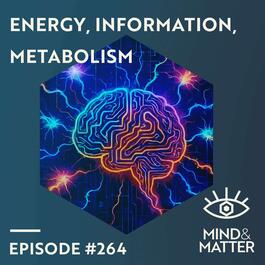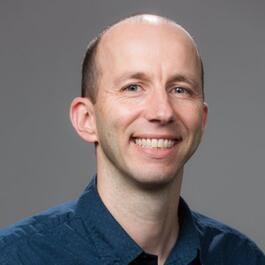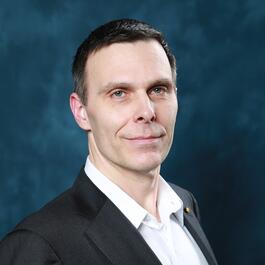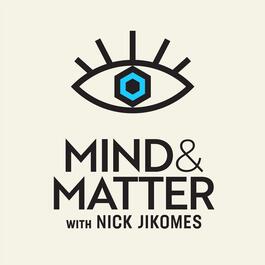
Mind & Matter
Whether food, drugs or ideas, what you consume influences who you become. Learn directly from the best scientists & thinkers alive today about how your mind-body reacts to what you feed it. The weekly M&M podcast features conversations with the most interesting scientists, thinkers, and technology entrepreneurs alive today. Not medical advice. At M&M, we are interested in trying to figure out how things work, not affirming our existing beliefs. We prefer consulting primary rather than secondary sources and independent rather than institutional voices. If we encounter uncomfortable truths or the evidence suggests unfashionable ideas may be valid, so be it. As the host, my aim is to help you better understand how the body & mind work by curating & synthesizing information in a way that yields science-based insights that you can choose to use or disregard in your own life. Taking ownership of your health starts with taking ownership of your information diet. I am motivated to connect the dots and distill general principles from what I learn, preferring to ask questions and play devil’s advocate to debating or incessantly pushing my own viewpoint. My beliefs: Taking ownership of your health starts with taking ownership of your information diet.All knowledge is provisional and we must work hard to prevent ourselves from becoming attached to our favorite ideas & preferred conclusions.Wisdom comes from an iterative, trial-and-error process of learning and unlearning. Letting go of pre-conceived notions can be painful, but pain is information. Sometimes modern discoveries teach us we must unlearn received wisdom. Other times, modern information overload & historical chauvinism cause us to forget ancient wisdom which stills applies. The framework for learning that I embody is inspired by three Ancient Greek maxims inscribed in the Temple of Apollo at Delphi: “Γνῶθι σεαυτόν” (Know thyself)“Μηδὲν ἄγαν” (Nothing in excess)“Ἐγγύα πάρα δ Ἄτα” (Certainty brings insanity)
Show episodes

Soybean Oil: Obesity, Fatty Liver Disease, Gut Health, IBS & Colitis | Frances Sladek | 269
Send us a text Metabolic effects of soybean oil and linoleic acid on obesity, fatty liver, and liver function. Topics Discussed:Historical trends in soybean oil use: Consumption increased dramatically since the 1960s due to farming subsidies, now providing over 10% of calories for many Americans, far exceeding the 1-2%
Send us a text How seasonal changes in light and dietary unsaturated fats affect circadian rhythms in mammals. Topics Discussed:Evolutionary context of circadian rhythms: All organisms have adapted to Earth’s 24-hour day for survival, with internal clocks slightly offset and adjusted by environmental cues.Molecular clo
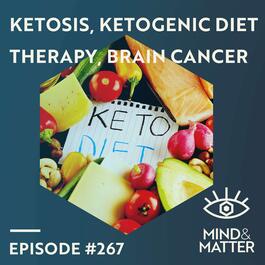
Ketosis & BHB: Metabolic Diet Therapies, Brain Cancer & Exercise | Dominic D'Agostino | 267
Send us a text How ketosis and ketogenic diets work and how these tools can improve metabolic health, brain function, and even cancer management. Topics Discussed:Organs have different fuel preferences: brain strongly prefers glucose, heart prefers fatty acids, skeletal muscle is flexible and likes fat/ketones.Humans e
Send us a text How dietary polyunsaturated fats, especially omega-6 from seed oils, influence inflammation & heart health. Topics Discussed:Polyunsaturated fatty acids (PUFAs): Omega-6 from seed oils like safflower and corn can convert to pro-inflammatory molecules, while omega-3s produce resolving ones; imbalance bias

Evaluating Science: Clinical Trials, Epidemiology, Preclinical Studies & Mendelian Randomization | George Davey Smith | 265
Send us a text Methods & challenges of establishing causal relationships in health research, emphasizing epidemiology, randomized trials, and genetic approaches. Topics:Epidemiology: Studies disease influences using observational designs like case-control and prospective cohorts, plus trials, to identify patterns and t
Send us a text Integration of brain metabolism with neural signaling, highlighting how core metabolites regulate energy use and protect neurons. Topics Discussed:Brain energy efficiency: Brains are much more energy-efficient than computers for similar processing, relying on adaptive metabolic strategies evolved under e
